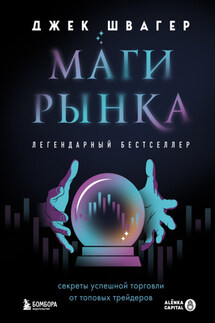Английский язык для студентов заочной формы обучения - страница 6
Solon was of noble descent but moderate means. He first became prominent in about 600 B.C. The early 6th century was a troubled time for the Athenians. Society was dominated by an aristocracy of birth, who owned the best land, monopolized the government, and were themselves split into rival factions. The social, economic, and political evils might well have culminated in a revolution and subsequent tyranny (dictatorship), as they had in other Greek states, had it not been for Solon, to whom Athenians of all classes turned in the hope of a generally satisfactory solution of their problems. Because he believed in moderation and in an ordered society in which each class had its proper place and function, his solution was not revolution but reform.
Solon's great contribution to the future good of Athens was his new code of laws. The first written code at Athens, that of Draco, was still in force. Draco's laws were shockingly severe (hence the term draconian), so severe that they were said to have been written not in ink but in blood. On the civil side they permitted enslavement for debt, and death seems to have been the penalty for almost all criminal offenses. Solon revised every statute except that on homicide and made Athenian law altogether more humane.
2.2.1.3 Задание 3. Ответьте на вопросы по текстам А, В, С, D
1 Who was the earliest known legal text written by?
2 What issues did the early laws emphasize?
3 Why do you think Hammurabi decided to have his laws carved into a pillar?
4 What spheres of human life were covered by Hammurabi’s code?
5 How do you understand the principle “an eye for an eye and a tooth for a tooth”?
6 In your opinion, were punishments always fair?
7 Why do you think people of different ranks were treated differently by Hammurabi’s code?
8 What does the ancient breek concept of Law comprise?
9 What is the origin and the meaning of the word “draconian”?
10 What was Solon’s great contribution to the future good of Athens?
2.2.2 Тексты для студентов специальностей «Бухгалтерский учет, анализ и аудит», «Финансы и кредит»
2.2.2.1 Задание 1. Прочитайте и запомните следующие слова и словосочетания:
accounting – бухгалтерское дело;
identify – определять;
measure – измерять;
record – записывать;
communicate – передавать (информацию);
economic events – экономические события;
sale of goods – продажа товаров;
payment of wages – выплата зарплаты;
evidence – доказательство; признаки;
relevant (to) – соответствующий ч-л.;
transaction – сделка, операция;
in monetary terms – в денежном выражении;
diary – дневник; order – порядок; ордер;
financial statement – финансовый отчет;
in the aggregate – в совокупности;
treasurer – кассир;
управляющий финансами (корпорации);
cash – наличные деньги;
ratio – относительный показатель;
chart – диаграмма;
account records – учетные записи;
cost – стоимость;
double – entry book keep – двойная учетная запись;
merchandise – товары;
income tax – подоходный налог;
describe – описывать;
data – данные;
annual statement – ежегодный отчет;
user – пользователь;
financial report – финансовый отчет.
2.2.2.2 Задание 2. Прочитайте тексты А, В, С, переведите их письменно
Тext А. What Is Accounting
As a financial information system, accounting is the process of identifying, measuring, recording, and communicating the economic events of an organization (business or nonbusiness) to interested users of the information. The sale of goods, the rendering of services, the payment of wages are examples of economic events. The first part of the process – identifying – involves selecting those events that are considered evidence of economic activity relevant to a particular organization.



